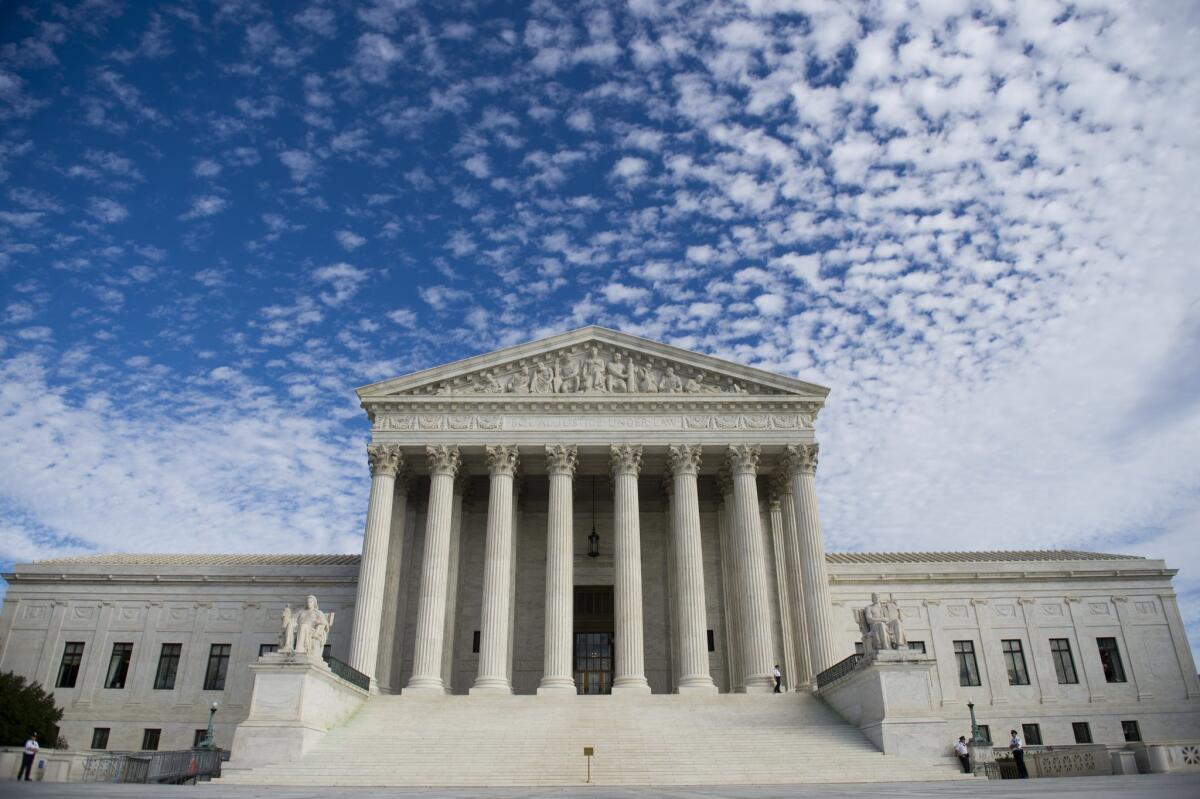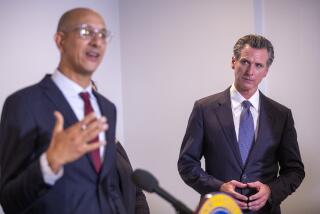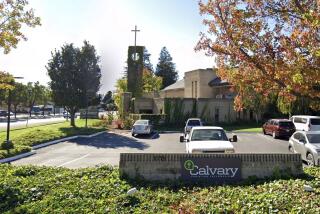Supreme Court gives partial win to churches fighting California’s limits on indoor worship services

- Share via
WASHINGTON — The Supreme Court told California judges on Thursday to take another hard look at state rules that ban most indoor worship services.
A week ago, the justices in a 5-4 decision lifted tight limits on churches and synagogues in neighborhoods of New York City where the virus was spreading. The court said those restrictions violated the 1st Amendment’s protection for the free exercise of religion.
Rather than issue a separate decision responding to a religious-liberty challenge to California’s restrictions, the high court issued a brief, unsigned order on Thursday telling federal judges in the Los Angeles area to reconsider Gov. Gavin Newsom’s even tighter restrictions on worship services in all of the population centers of California.
Florida-based lawyers for the Harvest Rock Churches in California said the governor’s restrictions for “Tier 1” mean that “indoor worship services are completely prohibited for 99.1% of Californians.”
While the court’s order appears to have no immediate legal impact, it suggests the state’s ban on indoor services is likely to fall.
In late May, the high court had rejected a religious-liberty challenge to Newsom’s earlier restrictions, which limited indoor church gatherings to 100 people. Then, Chief Justice John G. Roberts Jr. cast a deciding vote and said judges should be wary of second-guessing state and local officials who are trying to restrain the pandemic.
But since then, the death of Justice Ruth Bader Ginsburg and her replacement by Justice Amy Coney Barrett has shifted the majority. And the court now appears ready to strike down state restrictions on worship services that are more severe than the rules affecting retailers, offices and factories.
The decision is another at least partial victory for religious-liberty advocates and a setback for state health regulators. California’s lawyers warned the court about the surge in coronavirus cases and argued this was not the time to relax the restrictions on large indoor gatherings.
But Thursday’s order follows closely in line with the high court’s decision Nov. 25 to lift more targeted restrictions in New York severely limiting worship services in neighborhoods of Brooklyn and Queens, where the pandemic was spreading.
Two days before the court’s order in the New York case, Harvest Rock lodged an appeal of California’s restrictions. It argued that Newsom’s rules discriminated against religion because grocery stores, big-box retailers, warehouses and meatpacking plants could remain open and allow large gatherings while churches were closed. The appeal also said officials in Pasadena had threatened the Harvest Rock Church there and its pastor with fines and criminal charges.
In defense of the restrictions, the state’s lawyers said indoor gatherings where people congregate for an extended time pose greater risks of spreading the infection. “The risk is particularly high when such congregate activities involve singing or chanting, especially when they take place in buildings with limited ventilation,” they told the court.
The state’s “risk-based approach” sets the tightest restrictions in “Tier 1” counties, which include all of California’s population centers. There “the blueprint prohibits indoor gatherings for certain businesses and activities — including museums, movie theaters, restaurants and worship services — but allows such gatherings outside,” the state’s lawyers said.
A federal judge and a 9th Circuit Court panel had turned away Harvest Rock’s religious-liberty challenge to Newsom’s order. The judges did so by citing a late May decision of the Supreme Court which, by a 5-4 vote, refused to lift California’s earlier restrictions on the size of church gatherings.
Thursday’s order sets aside those decisions and tells the California-based judges to reconsider the issue in light of Roman Catholic Diocese of Brooklyn vs. Cuomo, last week’s decision from New York.
More to Read
Get the L.A. Times Politics newsletter
Deeply reported insights into legislation, politics and policy from Sacramento, Washington and beyond. In your inbox three times per week.
You may occasionally receive promotional content from the Los Angeles Times.











